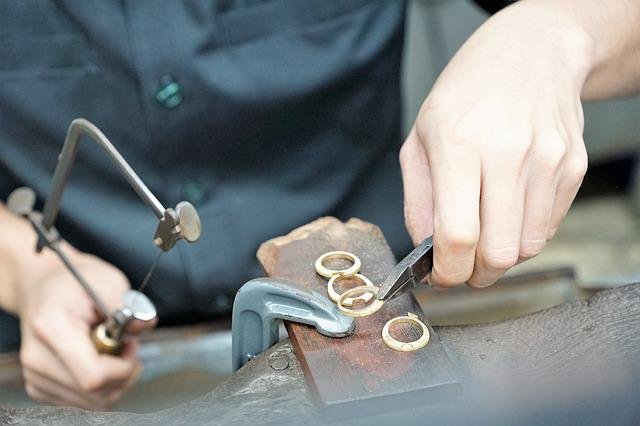Handmade jewellery can be easily damaged by water, chemicals and other factors that can tarnish it. To maintain your handmade
jewellery properly, avoid wearing it while swimming, washing hands or doing other strenuous activities. It would help if you also refrained from wearing it when lifting and pushing heavy objects. The stress can cause your jewellery to bend or break. So, follow these top tips when maintaining your handmade jewellery.
Table of Contents
Avoid contact with moisture while wearing jewellery
You should keep handmade jewellery away from moisture to extend its life. Keep it in a box to prevent contact with water and oxygen. Although handmade jewellery is meant to be worn daily, it often spends more time in storage than worn. A closed box will ensure its safety and prolong its life. Moreover, it would help if you avoid contact with water when you’re working out. You should also avoid storing your handmade jewellery with other items since it may be susceptible to scratching and rubbing.
When wearing handmade jewellery, make sure to protect it from exposure to moisture. Avoid prolonged contact with water or sweat, as it can cause tarnishing. You should also keep it away from hard surfaces and abrasive household chemicals. You can try Puravida Bracelets that have amazing designs.
Avoid exposure to chemicals
Avoid contact with water or harsh chemicals when caring for your handmade jewellery. Avoid wearing them while wearing make-up, as this can damage the diamonds and other components. Also, avoid exposure to harsh chemicals, such as household cleaners, perfume, and hairspray. Finally, avoid sleeping with your handmade jewellery as it causes unnecessary stress on the jewels. Handmade jewellery from Ordekian Jewellery comes in different styles.
You should avoid chemicals and plastic bags when storing them. Not only do these chemicals inhibit the oxidation of metals, but they can also cause discolouration and soften the piece. To avoid these pitfalls, keep your handmade jewellery away from harsh chemicals and ultrasonic cleaners. In addition, never use rhodium dip on your handmade jewellery – this substance can damage the finish and degrade the metal over time.
Wearing your jewellery while gardening or cleaning your home can cause dirt to penetrate the crevices. Also, avoid wearing them while exposing them to chemical cleaners, perfumes, and extreme temperature changes.
Store in bag or pouch
If you want to store your handmade jewellery safely, you can invest in an anti-tarnish bag or a pouch. These bags can protect your delicate pieces from tarnishing and are resealable. They are made of copper-coloured plastic and absorb pollutants from the air and the atmosphere, protecting your items from tarnish. These bags also protect other precious items, such as watches, as they are fully recyclable.
Anti-tarnish pouches and bags are available in different shapes and sizes, and they help protect silver jewellery from tarnishing for up to three years. The anti-tarnish pouches and bags are an excellent investment for any jewellery lover.
Re-string knotted jewellery every 3 to 4 years
Pearls can easily loosen, so it is essential to restring them every few years. However, no matter their material, pearl necklaces should be restrung every three to four years. The small holes in pearl necklaces can cause them to loosen. Pearls are incredibly delicate, and regular wear and soiling can cause them to break. The friction between pearls and string can cause a pearl necklace to break.
Once you’ve restrung your pearl necklace, you should consider cleaning it, and the pearls should be kept free from dirt and oil. During this time, you should examine the string’s condition and replace it if necessary.
Avoid making homemade cleaners for your jewellery
While some of these DIY jewellery cleaners can produce safe results, many of them may degrade and even destroy your handmade jewellery. Common ingredients such as lemon juice or baking soda can damage soft gemstones and plated jewellery. It is better to leave your jewellery to a professional jeweller to clean them. Gemstones, especially, are prone to chipping and should be carefully protected while wearing them. It is also best not to sleep wearing jewellery, as it can snag on blankets and cause damage.
An excellent homemade cleaner is tea-tree oil. This anti-bacterial oil is widely used in the cosmetic industry and has a strong smell, and it can be mixed with witch hazel or white vinegar to make a safe solution. You can also use baking soda, tea tree oil, or water to clean your handmade jewellery. However, make sure you do not use toothpaste or hard-bristled toothbrushes.
